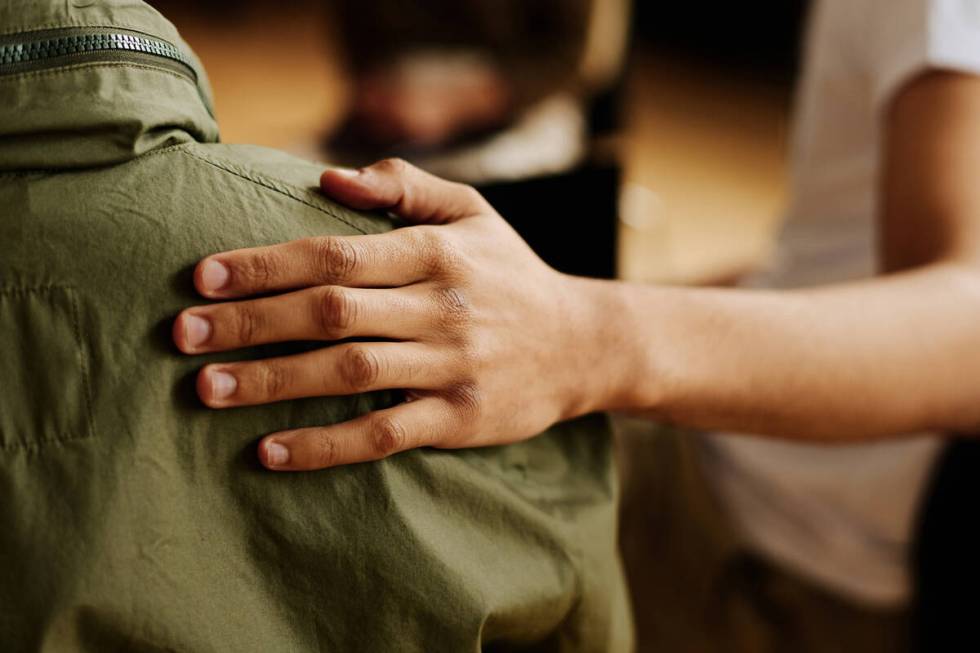We need to stamp out mental health stigma

Well over 50 million Americans live with a mental health condition, with 1 in 4 young people estimated to have a diagnosable mental health condition.
Despite these figures, stigma continues to be an obstacle to people seeking help. It’s perplexing to me.
However, I am encouraged today because the collective voice is getting louder, especially among our younger generation.
I would like to talk about how grateful I am to have received the help I needed after a prolonged battle: I have post-traumatic stress.
Near-death experience
When I was 14 years old, I was walking home from a park in the neighborhood where my grandparents resided in San Diego. The sun had set, and the streetlights were minutes from coming on. A dark-colored car pulled up beside me less than 10 feet away.
As I stopped to see who was inside of the car, my curiosity was rewarded with a gun pointed directly at me. The person holding the gun was intent on taking my life as the trigger was pulled twice. Thankfully, the bullets never left that gun. However, the trauma from that near-death experience remains with me today, some 30-plus years later.
For 10 years following my near-death experience, I suffered in complete silence. I did not share the incident with my family, for fear of how they would react. I worried that my parents would not let me go outside or socialize with peers. I also feared that if I shared what happened to me that I would be forced to share the daily flashbacks, or hyperarousal, I experienced each time I saw a car that resembled the one from that night.
Suffering in silence
As time went on, my symptoms worsened. I knew something was not right, but I knew nothing about mental health, and I definitely did not know I was living with a mental health condition.
I avoided parks and certain people for years. As the flashbacks became more intense, I started having suicidal thoughts. I was in so much pain that I lost the desire to live. My grades suffered, my motivation decreased and some of my relationships declined. At one point, I did not think I would make it out of high school.
I somehow made it through high school and college despite post-traumatic stress affecting my functioning. There were plenty of sleepless nights, but while in college, I would simply study instead of focusing on my thoughts or allowing the flashbacks to paralyze me like they often did throughout my adolescence.
Like so many others who struggle with mental health, you figure out ways to cope with the discomfort, which may not alleviate the psychological pain or persistent symptoms but makes them more tolerable.
The help I deserved
After living through a decade of untreated post-traumatic stress, I miraculously got accepted into graduate school with the hope of becoming a licensed mental health therapist. The program required students to have at least 10 hours of personal therapy.
By this point, I figured I had post-traumatic stress, but I felt ashamed. I thought if anyone knew, I would be considered weak and not suitable to be a therapist.
When I met with my therapist for the first time, I recall letting out the past 10 years of pain, guilt and shame. I needed to heal and, through therapy, I was able to do just that.
It was a freedom I experienced within my own body and mind that was so gratifying for me.
Because so many of us live with mental health challenges, mental health needs to be accepted, treated and talked about like we do everything else.
When I look back on my mental health journey, I could have avoided so many years of pain if I did not allow the stigma of my mental health condition to restrict me. I probably would have received the help that I not only needed but deserved.
I cannot help but think how much healthier we would be as a nation if we treated mental health the way we treat any other condition — with compassion.
Sheldon Jacobs, Psy.D., LMFT, is a licensed mental health professional based in Las Vegas. Contact him at drjacobs10@hotmail.com. Follow @drjacobs33 on X and Instagram.